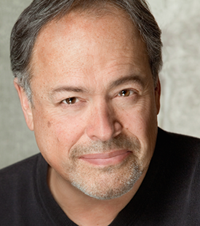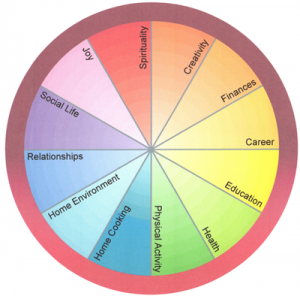Submitted on
Welcome to another episode of “10 Words or Less,” in which I ask brief questions of interesting people and request brief answers in return. Today’s participant is a health coach, financial adviser, and social activist — not to mention a passionate accordionist. Before we get started, a note to those playing at home: “10 words” is an target, not a limit, so please, no counting. If you think it’s so easy, let’s see you do it, especially on the fly.”
 Name Marc Sussman
Name Marc Sussman
Born when, where "Jan. 4, 1952, in Brooklyn, N.Y."
Resides now "Framingham, Mass., happily. I’m a new transplant."
What are you doing these days? “I am studying nutrition. I am studying financial planning, returning to that vocation sometime this summer. And just staying abreast of all the important issues going on in our country, and in the world."
What did you used to do? "I was a financial adviser full time for over 30 years. A certified financial planner and investment adviser."
When did you stop? “Two and a half years ago."
Why? “Health and emotional considerations. I was burned out. I needed to take a step back and reconsider what I really wanted to offer to people and the positions I wanted to represent."
An early influence outside your family “The Dalai Lama. I read a book he wrote, ‘Ethics for the New Millennium,' which is probably the highest level — I wouldn’t call it a financial-planning book, but if you want to understand the true meaning of money, that would be a good book to start with."
A hobby or a job that filled your teenaged years "Playing the accordion. From the time I was 8 years old until I was 15, I probably played between three and four hours a day. At that time, kids my age were studying the accordion. It was not uncommon for kids to be given accordion lessons. Now they’d probably put you away."
Some wisdom that remains from that experience “There’s no substitute for repetition and practice. You can have natural ability, but you’ll never reach your potential unless you put in the time."
Something that sets New Yorkers and Massholes apart "People from New York are just moving really fast. I used to come up here on weekends for four years, and when I got off the bus after a weekend, it would just hit me in the face. Increasingly, it became difficult for me to vibrate at that frequency."
What’s been your foremost challenge? “Reevaluating in the past couple of years. Realizing that I was burning myself out has been both humbling and very rewarding. It’s been the single-most positive thing that’s happened to me. I realized that adversity is valuable in all our lives."
What’s your Al Gore connection? "I had a radio show on the Air America radio network for about four years. Someone from his office was a listener. They asked me to come down to a training that he was doing for environmental activists, or people who wanted to be. It was a very important experience. I met my girlfriend down there — she’s also an environmental activist — and we’ve been training and doing presentations on climate change and its impact since 2008."
Was the vice president ever there? “He was in all of them. He's the trainer."
What’s the connection between environmental activism and integrative nutrition? “The way we grow our food contributes greatly to production of both methane and carbon dioxide. We get more CO2 and methane from factory farming, by a wide margin, than we do from industry or automobiles."
 Please explain the Integrative Nutrition concept of primary food “It’s what really makes us tick. The nutrition we get, the food that we put in our bodies, is secondary to all of the component parts of our lives that bring happiness, satisfaction, joy. What I’ve found is that most people who have problems with secondary food have big pieces missing out of their lives, whether it’s relationships, or spirituality, or creativity, or their career, or their education. There’s something called the Circle of Life [left; copyright, Institute for Integrative Nutrition], which names all of the components."
Please explain the Integrative Nutrition concept of primary food “It’s what really makes us tick. The nutrition we get, the food that we put in our bodies, is secondary to all of the component parts of our lives that bring happiness, satisfaction, joy. What I’ve found is that most people who have problems with secondary food have big pieces missing out of their lives, whether it’s relationships, or spirituality, or creativity, or their career, or their education. There’s something called the Circle of Life [left; copyright, Institute for Integrative Nutrition], which names all of the components."
Do you buy the concept of food addiction? “Yes. Especially sugar. It’s difficult to make a distinction between someone who’s a heroin addict and a sugar addict when you look at the effect these things have on the human body. CAT scans are almost identical in the way they react in the human brain."
Something you wish more people understood "What we do in our lives impacts everybody else. We think that we live distinct lives that are separate from everyone else, but it’s not true. I wish more people would spend more time serving others instead of serving themselves."
Is there a way to do both, serve others and yourself? "Yes! By serving other people, you serve yourself. Yeah, definitely. That’s the key to true happiness, to serve other people. Not to gather things for yourself, but to make other people’s lives better. Again, it’s a Dalai Lama message."
Is there anything I should have asked that I didn’t? “As a financial advisor, I believe we have to be concerned with what our money does. Not just how much we have, but what it does."
How often, with potential clients, do you lead with that? “Always."
Aren’t most people tightly focused on the amount first? “Michael, what I do as a financial adviser is a grain of sand on the beach of financial services. People are fearful about their own money. They’re living in survival mode. So they’re trying to protect what they’ve got. But what I think they don’t realize is, that attitude has caused a lot of pain in the world.”
- Michael's blog
- Log in to post comments